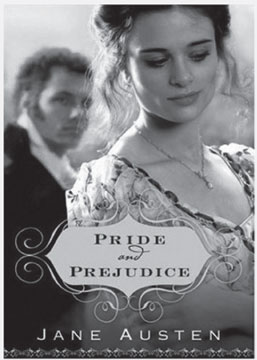Prejudices ingrained in human psyche
 Without the aid of prejudice and custom, I
should not be able to find my way across the room. Without the aid of prejudice and custom, I
should not be able to find my way across the room.
William Hazlitt
William Hazlitt has stated a universal truth: Prejudices are an
integral part of humanity. However much we try to get rid of various
types of prejudices, they will remain with us until doom's day. People,
it seems, are rather more prejudiced than they think they are.
According to American Heritage Cultural Dictionary, prejudice is "A
hostile opinion about a person or class of persons. Prejudice is
socially learned and is usually grounded in misconceptions,
misunderstandings and flexible generalisations. In particular,
African-Americans have been victims of prejudice on a variety of social,
economic and political levels.
Antagonism between groups continues in almost all countries. With all
their education and civilisation people find it difficult to get along
with others who are different from them in some way. Ethnicity, religion
and language are some of the factors that play an important role in
segregation. All religious leaders and philosophers have addressed this
problem from time immemorial but there seems to be no solution in sight.
 |
|
Jane Austen's
path-breaking novel
Pride and Prejudice |
Racism is a glaring example of prejudice. The case of James Byrd in
the USA is cited very often to show the gravity of racism. Three white
men offered a lift to Byrd, a black man. Shortly thereafter, Byrd's
mutilated body was found in Texas. According to police, Byrd had been
targeted simply because he was black. Such gruesome incidents may be
rare in modern times. However, racism still exists in certain countries
at least in a milder form. Thankfully, old-fashioned discrimination
against minority groups has declined rapidly. That is good news. The bad
news is that more subtle forms of prejudice have emerged over the years.
Symbolic racism
Modern discrimination or what is called "symbolic racism" is very
much evident in European countries. The British attitude towards West
Indians and Asians and French attitude towards North Africans and Asians
are glaring examples of symbolic racism. Another novel way of
discrimination is not to vote for candidates of a different race.
During World War II Jewish people in Germany and German-controlled
lands were forced to wear yellow stars to identify themselves as Jews.
Later the Nazis put them in concentration camps. Everybody knows what
happened to the innocent Jews. They were tortured and sent to gas
chambers to appease the blood thirst of Adolf Hitler. A similar
situation existed in South Africa when apartheid was in force from 1948
to 1994.
The unfortunate incidents in Germany and South Africa show that
racial prejudice is an insidious moral and social disease that affects
people all over the world. The symptoms of the disease are fear,
intolerance, separation, discrimination and hatred. To counteract the
dreadful disease of racial prejudice, modern states have enacted
legislation to ensure that people treat others with respect and dignity.
Despite such lofty legislation and ideals human society continues to
suffer from social prejudice.
Homo Sapiens
While all of us belong to the same species - Homo Sapiens - races are
distinguished by their hair colour, complexion, facial features and size
of the body. Although scientists say that the characteristics are common
to all human beings, people try to find differences. The Bible provides
enlightenment for those who wish to get out of the vicious circle of
racial prejudices. It says, "Jesus replied: Love Lord your God with all
your heart and with all your mind." That is the first commandment. The
second commandment says, "Love your neighbour as yourself."
Gender discrimination appears to be another offshoot of racism. In
Western societies women are often discriminated against in the
workplace. Women on average earn less pay than men for doing the same
work. In some places, women are sexually harassed simply because they
are different from men. Antagonism or prejudice is a negative attitude
towards members of a group. This leads to discrimination in an unfair
way. Although there is no relationship between antagonism and prejudice,
they seem to be welded together.
Jane Austen was one of the leading novelists who saw the age-old
relationship of prejudice and humanity. In her path-breaking novel Pride
and Prejudice, one of her major characters - Darcy - is shown to be too
proud of his own social standing. Darcy looks down on people especially
the Bennets. Even Elizabeth's pride is hurt when she was slighted by
Darcy. Lady Catherine too is incredibly proud. She expects others to
praise and obey her. Collins' pride changes according to the person he
deals with. At one stage Darcy offends Elizabeth. Then she allows
everything to feed the prejudice she develops against him. Mrs Bennet
too develops a glaring prejudice against Darcy on seeing his behaviour
at the ball. However, when Darcy proposes to Elizabeth Mrs Bennet's
prejudice begins to melt away.
With all the civilisation and culture, we have not been able to get
rid of various types of prejudice. According to psychologists, prejudice
is rooted in cognitive processes which triggers almost automatically. As
a result, we tend to stereotype and find differences between us and
others. In Essays of Elia, the whole problem of prejudice is summed up
in a memorable way: "I am, in plain words, a bundle of prejudices - made
up of likings and dislikings."
|

